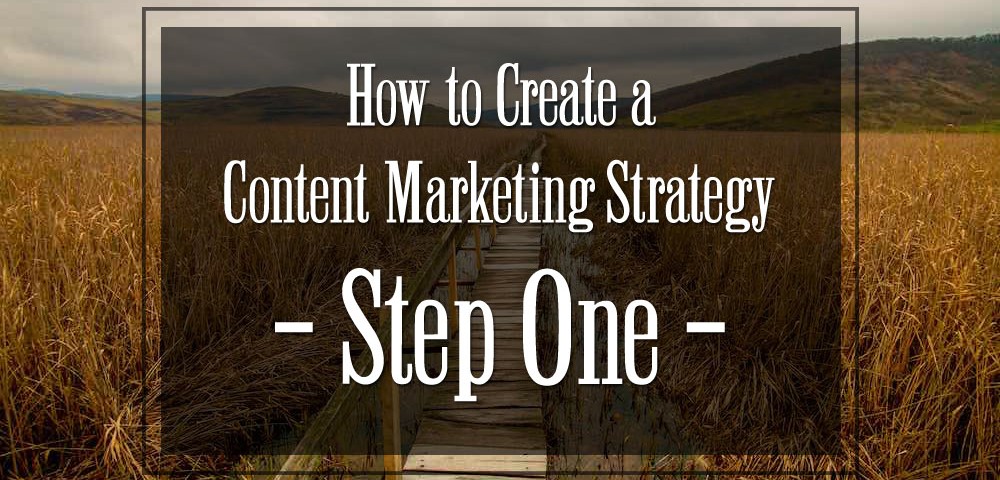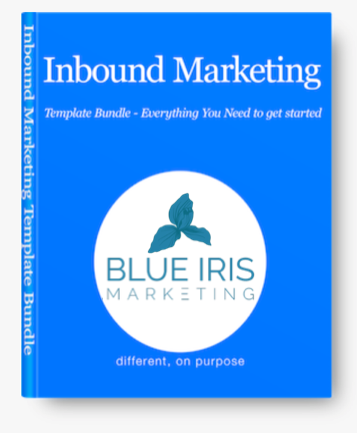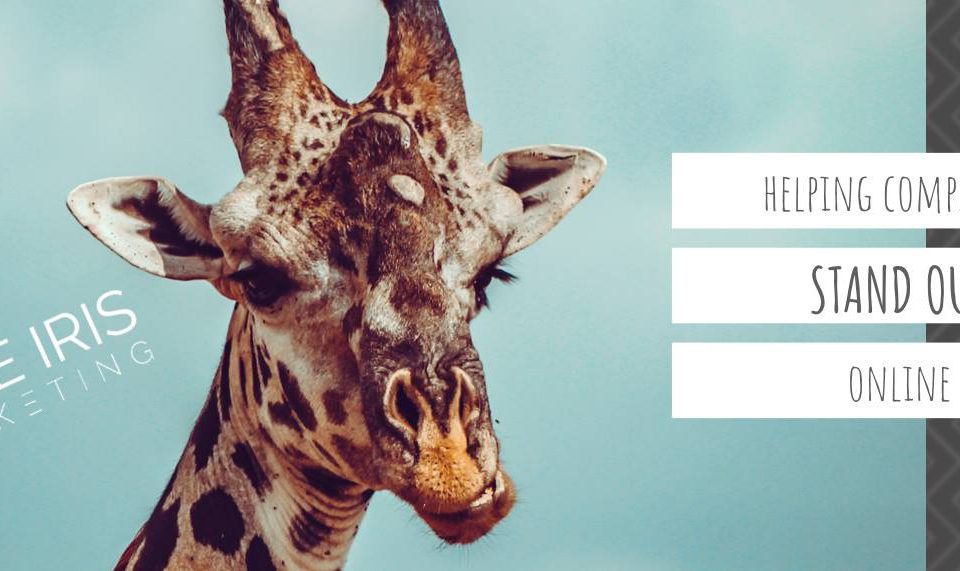How to Create a Content Marketing Strategy – Step One

How to Attract More Targeted Traffic
December 16, 2016Buyer Personas – Getting it Right is More Important than You Think
January 23, 2017Marketing Managers set their expectations on the wrong goal when it comes to producing content. They expect each piece to independently increase their website traffic, the number of leads and local search engine rankings.
Most articles are just a “drop in the Internet ocean.” Just one more article among a bunch of similar ones (sometimes exactly the same), without any new perspective or original insight.
According to MarketingProfs, more than 2 million articles are being published every day on the web!!! EVERY DAY!
Writing general content is a waste of time and money. It’s a bad investment. It’s not good for your budget, your business or your brand.
And, let’s face it, it’s not good for your career as a marketing manager or writer.
So, you ask yourself, “How do I create content that ranks well?” Content that stands out among the others in its ability to answer your buyers’ real-time questions will outrank and outperform all other.
Doing so, requires a great deal of research and buyer analyses. Your Content Marketing Plan is developed based on the unique needs, behavior, demographics, habits, thoughts (and much more) of each of your unique buyer personalities.
Creating Your Content Marketing Plan
The first step in developing an effective content marketing plan is creating a detailed buyer persona for each unique buyer type you serve.
The buyer persona, also known as a customer persona, is a heavily researched, detailed document that outlines the various needs, goals, and observed behavior patterns of a segment of your real and potential customers.
We’ve created a detailed, complimentary download to help you create your buyer personas. We’ve also provided a complimentary download of the detailed Buyer Persona template our agency uses with our clients.
Buyer Persona Research Improves Content Marketing Results
The Importance of Buyer Personas
The foundation of any inbound marketing plan is high-value, quality content.
Your content is developed based upon what you understand your buyer is looking for throughout every stage of their buying journey.
Once the content has been published, it is then promoted on the channels and platforms that your ideal buyer frequents.
Studies show us that nearly 100% of buyers in our culture begin their buying process online. They begin doing research when they are in the Awareness phase. They compare options and pricing when they are in the Consideration phase. In the third phase, the Decision phase, they purchase the solution that seems most fitting to them. Throughout the entire process, your content should impress and delight them.
Not every buyer will conduct every phase online, however a growing number of buyers are conducting as much of the process online, as possible.
Inbound marketing is so named because your high-quality content and promotional strategy attracts your buyer to your website. When done well, your buyers will find the content they are looking for and they’ll find it where and how they are most likely to look for it. The content will compel the buyer to click through to your website or landing page.
If the content is written well, contains exactly what your buyer is looking for and you have a solid inbound marketing funnel in place, your new prospect will become engaged. Once engaged, you have the opportunity to move them through the marketing funnel, nurturing them effectively – from marketing to sales – through your customer conversion process.
Given the fact that each of your campaigns will be promoted solely on channels used specifically by your buyer persona, your cost per lead and ROI is increased over traditional marketing practices. Your research and understanding of your buyer’s habits will help you determine the most effective promotional methods and channels to reach your target market.
The First Step to Marketing Success: Creating a Detailed Buyer Persona
Once you have created detailed buyer personas for each buyer persona your company is targeting, you can then begin the development of your content and your marketing strategy. It simply is not possible to create a “one-size-fits-all” inbound marketing campaign. Your Content Marketing Plan will contain a unique content and marketing strategy for each buyer persona you intend to target.
The unique buyer persona details will dictate the following elements (and more) of your content and marketing strategy:
- Keyword Phrases
- Content type
- Content subject matter
- Content format
- Places where you will post the content
- How and where you will promote the content
- The channels and platforms you’ll leverage to attract your buyer
A generic and ill-conceived content marketing plan might simply require you to:
- produce a certain number of blog posts weekly
- post on social channels with a specific frequency, and
- manage paid ads on a selection of social platforms
However, a buyer-persona-driven content marketing plan will be driven completely by each unique buyer persona.
All content development and marketing activities will be based upon the information you have about your unique buyer personas. You can begin to understand how a poorly defined buyer persona can easily and predictably result in failed or low-yield campaigns.
Key Parameters for Buyer Persona Research
When gathering information for the purpose of creating a buyer persona you should focus your attention on following parameters:
Problems – everything starts with a problem or with the need to find a solution for a specific issue. A product or a service your business is offering is designed to resolve a specific problem experienced by your target group. That is why this “problem” is the starting point when creating a buyer persona. So, what is the “problem” of your target group that can be solved by using your product or service (or content piece)?
Channels – When your buyer persona becomes aware of the “problem” they start searching for a way to resolve the issue. Your buyer persona can do their research by using different online channels, such as Google search, social media, forums, and more.
Your research should identify the channels your buyer persona is using so that your campaign targets those exact channels.
Keywords – Defining keywords your buyer persona is using when searching for a product or service is also an important segment of our research. It’s upon those keywords you will base the content of your articles, your SEO campaign, your landing pages and every other element of your inbound marketing campaign. If you choose the wrong keywords, or try to use highly competitive keywords, it will be impossible for your campaign to succeed.
Preferences – Your thorough research will help you understand how your client thinks. It will help you have clarity about the consequences and impact of their circumstances when they are in need of your solution. When you possess a palpable, granular understanding of your client’s condition, your content and offers will speak directly to them.
You’ll know how to develop your marketing funnel and nurturing sequences to move them through the funnel. You’ll create loyalty and trust as you help them through their buying journey.
Your research will help you understand how to provide product comparisons, case studies and content that helps them compare their options. You’ll know what page visits and actions a prospect takes on your website indicate it is time to move the lead from marketing to the sales department. The timing of your sales team’s direct outreach is also critical to your closing ratio.
Understanding and nailing every single element from the top of the funnel to the closing call will dynamically affect the success of your inbound marketing campaigns.
This is an abbreviated list of the most relevant parameters. We produced a series of “Buyer Persona How-to” articles and worksheets that will walk you step-by-step through the process of producing detailed buyer personas and very successful Content Marketing Plans.
How The Buyer Persona Influences The Content Marketing Plan
Focus on buyer’s decisions
There is one reason to create and manage inbound marketing campaigns – and that is to ultimately convert your leads into new customers. Clearly the means to that end are to increase targeted traffic, increase blog subscribers, create landing pages and content offers that convert visitors to leads and close more clients.
Understanding the decision criteria and actions that cause your buyer personas to engage your offers, download your content and consider your solution is critical to your goal.
Here are six criteria that influence your buyer persona’s decisions. Having a clear understanding of these areas will help you create content that speaks directly to the heart of your buyer.
- Priority principle: Have a clear understanding – in the words of your buyer or client – about why they choose your particular product, service or solution.
- Differentiation principle: What are the distinct differences between your customers who are moderately happy and extremely happy with your solution?
- Success principle: Describe in clear terms what success looks like when your solution is maximized within the client’s environment. Detail the quantifiable value of the resulting success, collateral benefits and resulting opportunities, and return on investment that is experienced by customers who achieve great success with your solution?
- Possible barriers principle: What barriers might exist, in the customer’s perspective, that could prevent them from considering your solution viable?
- Decision process approach: What and who might be influencing your buyers in their decision process? Is your buyer persona the decision maker, an admin assistant, gatekeeper? Understanding each of the buyer persona that will conduct research within a company for the same solution should influence the types of content you create. Certainly the content that is written for the actual decision maker would be different than the content written for the person responsible for gathering information about solution options.
- Decision-making approach – When comparing your product/service/solution to your competition’s, what are the factors your potential clients see as crucial, and what are their expectations? What is the decision-making process within your client’s company? How does this influence content and offer development in the Consideration and Decision Phase? How will it influence the timing with which the sales team makes contact with the client?
Buyer Persona Interviews and Surveys
We often see that Marketing Managers create their buyer persona using their personal knowledge about the customer. Most often minimal, if any, research is conducted. Developing an inbound marketing campaign using subjective conclusions can be fatal for your entire campaign.
One significant advantage of online marketing, especially inbound marketing, is the fact that communication with buyers and potential clients is much easier than it ever has been. It isn’t difficult to do customer research and obtain customer feedback. Make use of the many available tools to conduct surveys and receive feedback and insight.
Take some time to get to know your recent clients, and make sure to include both groups – the ones who chose your product/service and those who didn’t. Do your research before interviewing your customers. Be sure you are asking the best questions. Communicate with your buyers, and let them explain to you why they preferred you (or didn’t). This conversation can take as little as 10 minutes, but never more than 30 minutes. At first, it may seem like a lot of time invested, but trust me, you’ll end up saving an enormous amount of time you would otherwise spend on going back to the proverbial drawing board. A failed campaign is very expensive.
Using buyer persona when developing Content Marketing Plan
Your buyer research has revealed very valuable information about your buyers’ thoughts, habits, online behaviors, challenges, goals and more.
Using the information you’ve gathered, identifying the answers to these questions will begin to help you create your Content Marketing Strategy.
- What types of content will your buyer persona best respond to. This answer is often driven by their online search habits for new products?
- What format is best for the types of content they will be looking for?
- What types of thought leadership, case studies or white paper might they look for?
- What product features are important to them?
- What are the best calls-to-action to use for each type of content?
- What will your follow up sequences look like and what content and offers should be included in them?
- What voice, tone, and rhythm should you use?
- What are the best platforms and channels to promote the content?
- What are the best social channels to leverage and with what frequency?
- What types of paid ad campaigns should you run?
The Most Successful Campaigns are Buyer Persona Focused
In our long collaboration with marketing agencies and marketing departments of different companies, we’ve discovered that it isn’t uncommon for marketing managers to try to model and adapt the content strategies of their competitors.
There simply is no way to produce desirable results without doing the research and developing your Content Marketing Strategy based on the unique needs of your buyer personas and your company’s unique approach to meeting their needs.
If you are doing something others have already done, there’s no way it will speak to or attract your buyer. There are too many important nuances that will be missed and ultimately your campaign will fail.
If your budget or resources are small, start with one buyer persona. Focus on the one product or solution that will be most attractive to your most profitable buyer persona group.
Use the model we’ve described and I promise, your results and return on investment and resources will be impressive. With this win, you can move to the next campaign and the next…
Give the readers what they want
Your buyer persona research will help you put together content that will be attractive and very useful to your buyer. Setting up the proper nurturing processes that automatically moves your new targeted traffic through your marketing funnel will produce attractive and profitable results.
While developing a successful, high-impact inbound marketing content strategy is a multi-faceted, complex, it is doable. If you find yourself with good intentions and not enough time or people to get this done in a timely manner, let us help you.
We can support you consultatively, help with one or more of the elements or develop and manage your entire campaign process.
We’ll work with you to determine if the ROI supports the investment. Based on that information, we can help you develop a campaign that will produce impressive and exciting results. This is what we do.
Have questions? Not certain? Just ask our clients. They will happily share the results we’ve achieved for them.
Want to do it yourself? Here’s our detailed buyer persona template. Download it and get started!





